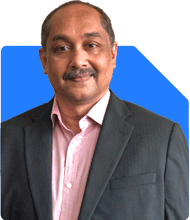Hardik Parikh | Answer |Ask -Follow
Tax, Mutual Fund Expert - Answered on May 04, 2023
He also holds an MBA degree from IIM-Indore.
Hardik, who began his career as an equity research analyst, founded his own advisory firm, Hardik Parikh Associates LLP, which provides a variety of financial services to clients.
He is committed to sharing his knowledge and helping others learn more about finance. He also speaks about valuation at different forums, such as study groups of the Western India Regional Council of Chartered Accountants.... more

Good Morning. 1. Can you mention the sectors that have been contributing for the Indian Economy and Growth for past six decades, such as Petroleum, and their significance in next one to two decades?. 2. How much did such sectors contribute to our Economy?
It's great that you're interested in understanding the sectors that have contributed to the Indian economy and growth over the past six decades. I'll list a few of the key sectors and briefly explain their significance in the coming one to two decades.
1. Agriculture: Agriculture has been the backbone of the Indian economy, with over 50% of the population engaged in this sector. In the next one to two decades, modern farming techniques and digitization will play a significant role in increasing productivity and efficiency.
2. Textiles: The textile industry has been a major employment generator and contributor to India's export earnings. Going forward, focusing on sustainable practices and adopting advanced technologies will be crucial for this sector's growth.
3. Information Technology (IT) and IT-enabled Services (ITeS): The IT sector has propelled India onto the global stage and significantly contributed to the country's economic growth. In the coming decades, new technologies like Artificial Intelligence, Internet of Things, and 5G will open up new growth opportunities.
4. Infrastructure and Construction: Infrastructure development has played a crucial role in India's growth story. The next one to two decades will witness continued focus on improving roads, ports, airports, and urban infrastructure.
5. Banking and Financial Services: This sector has been vital in mobilizing resources and driving economic growth. With the increasing penetration of digital payments and fintech solutions, this sector will continue to evolve in the coming years.
6. Pharmaceuticals and Healthcare: India's pharmaceutical industry has made significant strides in providing affordable medicines globally. The focus on research and development, along with a growing domestic market, will be crucial for this sector's future growth.
It's difficult to provide precise figures on each sector's contribution to the Indian economy, but as a financial advisor, I would suggest you consider investing in a diversified portfolio that includes some of these sectors. This will help you benefit from the potential growth in these industries and minimize risks associated with investing in a single sector. Remember to consult a professional financial advisor before making any investment decisions.
I hope this information helps you in making informed decisions about your investments.
You may like to see similar questions and answers below
Ambareesh Baliga | Answer |Ask -Follow
Stock Market Expert - Answered on Feb 05, 2023
Chocko Valliappa |475 Answers |Ask -Follow
Tech Entrepreneur, Educationist - Answered on Nov 15, 2023
Samraat Jadhav |2171 Answers |Ask -Follow
Stock Market Expert - Answered on Dec 19, 2024
Nayagam P P |4059 Answers |Ask -Follow
Career Counsellor - Answered on Jan 19, 2025
Ramalingam Kalirajan |7550 Answers |Ask -Follow
Mutual Funds, Financial Planning Expert - Answered on Jan 19, 2025
Ramalingam Kalirajan |7550 Answers |Ask -Follow
Mutual Funds, Financial Planning Expert - Answered on Jan 19, 2025
Kanchan Rai |496 Answers |Ask -Follow
Relationships Expert, Mind Coach - Answered on Jan 19, 2025
Kanchan Rai |496 Answers |Ask -Follow
Relationships Expert, Mind Coach - Answered on Jan 19, 2025
Dr Shyam Jamalabad |86 Answers |Ask -Follow
Dentist - Answered on Jan 18, 2025
Dr Nagarajan Jsk |208 Answers |Ask -Follow
NEET, Medical, Pharmacy Careers - Answered on Jan 18, 2025
Dr Nagarajan Jsk |208 Answers |Ask -Follow
NEET, Medical, Pharmacy Careers - Answered on Jan 18, 2025
Dr Nagarajan Jsk |208 Answers |Ask -Follow
NEET, Medical, Pharmacy Careers - Answered on Jan 18, 2025
Dr Dipankar Dutta |742 Answers |Ask -Follow
Tech Careers and Skill Development Expert - Answered on Jan 18, 2025





























